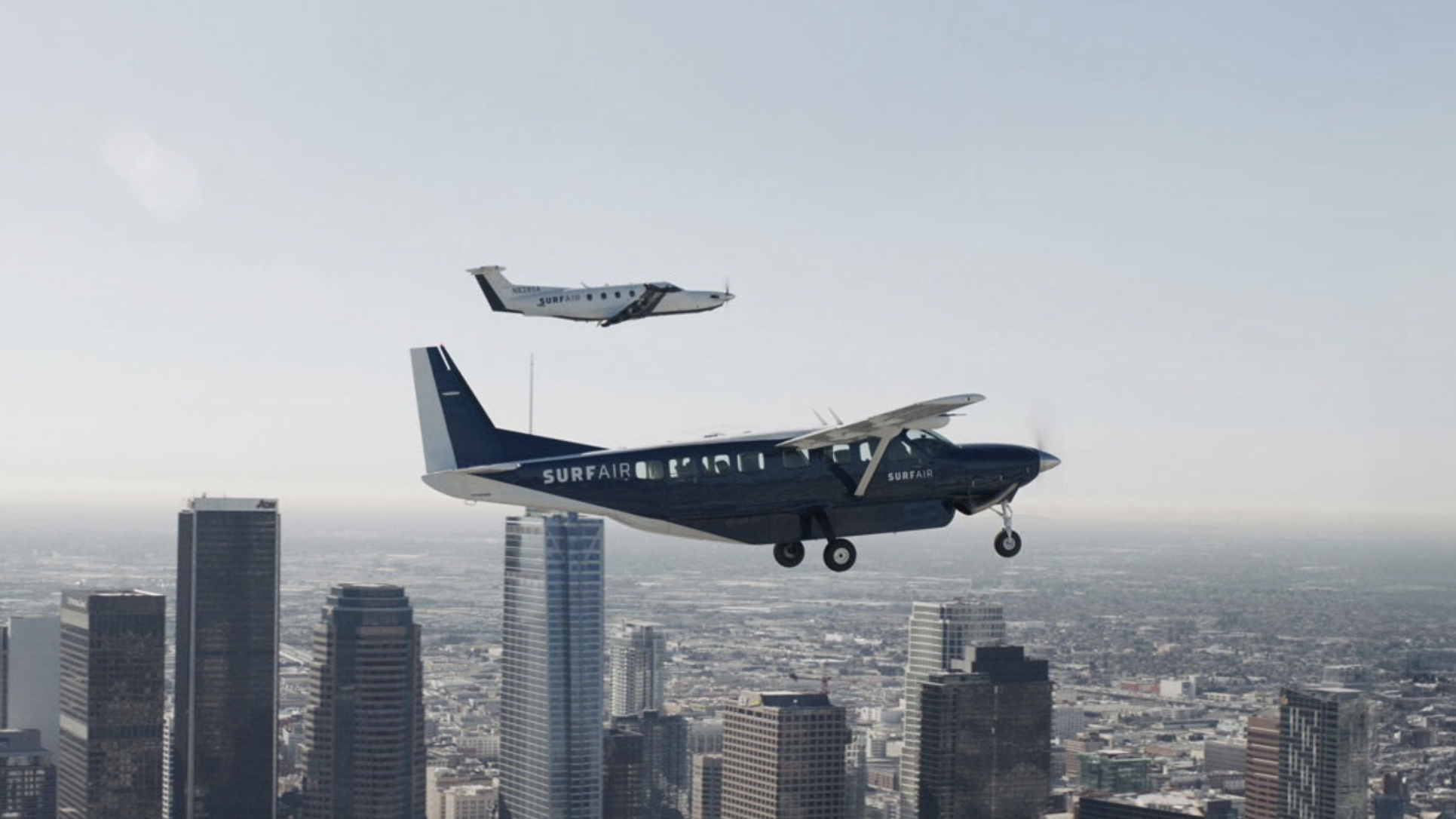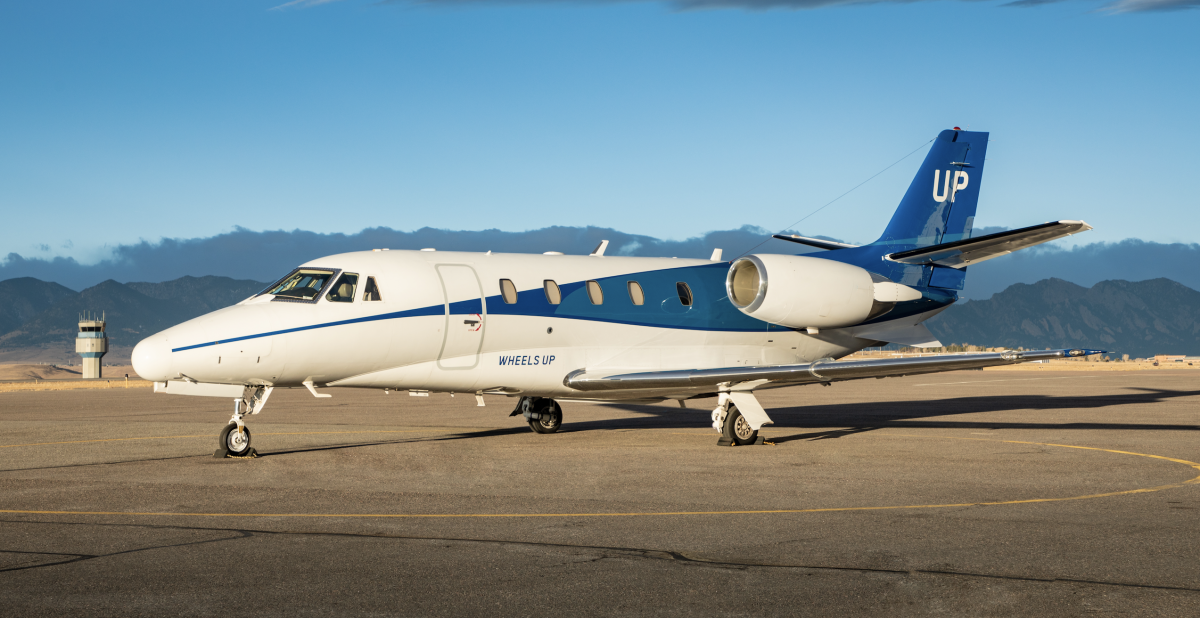

As expected, Wheels Up’s losses in Q4 mounted. However, executives painted a bright picture based on moves that increase efficiency, operational integrity and reduce costs in coming quarters. They also said cash and cash equivalents surged by a quarter billion dollars to $785 million as of December.
Wheels Up is the third-largest operator in North America, based on fractional and charter flight hours.
Impacting current members, the private jet provider said it would implement fuel surcharges beginning April 9, ranging from $295 to $895 per hour based on aircraft category.
Executives disclosed the fuel surcharge during its earnings call with analysts this morning.
According to an email sent to Wheels Up members last night, fuel surcharges per hour are as follows:
Data on the fuel surcharges have been updated in the Private Jet Card Comparisons’ database for paid subscribers. The database compares over 250 programs by more than 65 variables and includes over 40,000 data points. It’s the 23rd update of the year.
In January, Vista Global’s XO implemented fuel surcharges.
Both used clauses from their jet card membership contracts.
Other providers have unilaterally increased contracted rates, added peak days, blackout dates, increased call-outs, and implemented daily flying caps.
It’s the first time since the spike in demand in June 2021 that Wheels Up has made a unilateral change. Its November 2021 membership changes impacted only new members. It also provided existing members a 30-day window to lock in existing program terms.
In a recent survey, 43% of Private Jet Card Comparisons’ subscribers said policy, rules, and pricing changes are causing them to consider other programs.
Q4 revenues for Wheels Up increased 64% to $345 million. For the full year, revenues jumped 72% to $1.194 million.
The company told analysts it expects 2022 sales of between $1.35-to-$1.42 billion.
Live flight legs in Q4 were up 64% to 20,296, and Wheels Up flew 73,522 live legs in 2021, up 65%
Comparisons include the addition of Moutain Air, acquired in January 2021.
EBITDA loss for Q4 jumped from $11.3 million in 2020 to $46.3 in 2021.
For Full Year 2021, Wheels Up lost $87.4 million on an EBITDA basis, up from $52.4 million. Net loss for the year increased to $197 million from a net loss of $79 million in 2020.
Barrington Research analyst Gary Prestopino noted, “Adjusted contribution margin decreased due to supply constraints, increased operating costs and an increase in equity-based compensation expense that included an equity grant to Wheels Up’s pilots.”
Year-over-year active members increased to 12,040 from 9,212.
As of December 31, 2021, Wheels Up’s cash position increased to $785 million from $535 million at the end of Q3.
The increase in cash was driven by a record $540 million in jet card block sales during Q4, up 80% over Q4 in 2020. For the year sales of deposits from $609 million in 2020 to $877 million last year. Over 60% of Core and Business members have blocks.
It also means deferred revenues increased to $935 million from $587 million quarter-to-quarter. In other words, members are depositing money against flights they will take in the future.
Wheels Up members can deposit $100,000, $200,000, and $400,000. Increased deposits offer fewer peak days, lower hourly rates, shorter call-outs, and include deicing costs.
Like everyone, Wheels Up operations are impacted by supply chain issues, surging demand, and labor shortages, particularly pilots. We first reported on these challenges back in August.
Executives said the company suffers from having six different operating certificates due to its acquisition spree, which exacerbates scheduling and staffing inefficiencies.
Key enhancements include over 200 more pilots coming online, all of whom will be flying by the end of the second quarter.
Pilot shortages have prevented Wheels Up from utilizing its owned and leased fleet to capacity.
Second, it is increasing its in-house maintenance capacity, which will reduce costs and decrease the time aircraft are on the ground for repairs.
It also launched a mobile repairs unit designed to fix aircraft with maintenance issues in places with no local solution.
Executives say third-party MROs have limited capacity and longer times to repair jets. Bringing more maintenance in-house will improve availability.
Wheels Up is further implementing AI-based scheduling software to improve efficiency across its operators. Currently, allocating demand between operators is a manual process.
According to executives, as it combines operations under one certificate, Wheels Up will achieve efficiency gains in pilot scheduling.
Prestopino predicts, “These efforts, combined with rate increases and cost-saving measures, should drive margin improvements starting in the second half of the year.”
Wheels Up said it had increased availability from owners of aircraft it manages via charter revenue guarantees to better meet demand.
It is also acquiring aircraft it will then resell with the new owners either leasing the jets back to Wheels Up or guaranteeing charter availability. There is currently an aircraft inventory of $18 million it will churn for these transactions. It expects that inventory will grow to $60 million.
It is also expanding Guaranteed Revenue Programs. GRPs are where it contracts private jets from other operators for extended periods. It gives Wheels Up scheduling control to use the aircraft for its members.
Executives, including Chairman Kenny Dichter, President Vinayak Hegde, and CFO Eric Jacobs, also pointed to its $14 million acquisition of Alante, adding a dozen light jets.
The company also spent $65 million to buy aircraft it has been leasing from Texton.
Capacity limits have meant it has left money on the table from Connect members and non-members who don’t have guaranteed availability.
In the future, technology will open capacity, enabling the company to offer discounts to customers who are willing to move flight departures. That flexibility will enable Wheels Up to serve two customers with one aircraft, whereas it currently takes two jets.
Separately, Air Partner’s board has approved its acquisition by Wheels Up. Dichter told analysts the deal is now just waiting for regulator approval.
In another announcement, former Delta Air Lines executive Dave Holtz has joined as Chairman of Operations. According to a press release, he reports to Hegde and will work with COO Tom Bergeson.
As of late morning, Wheels Up shares were trading at $3.22, down from their opening price of $3.52 and up from a low of $3.14. Since going public, shares have been as low as $3.03, off a high of $15.
Prior to the call, analysts tracking Wheels Up had their target share price at between $6.33 and $9 with consensus Hold recommendations.
Baird’s Michael Bellisario wrote in his post-call report, “We are staying on the sidelines and lowering our price target and near-term estimates to account for the continued operational challenges and expense pressures that are pushing out the path to and timing of eventual profitability for the company. Positively, these headwinds are better understood and incorporated into earnings estimates today, in our opinion. Demand trends remain robust, and management continues to point to an expected improvement in profitability in 2H22.”
Jacobs said Core and Business members who make deposits continue to renew at over 90%, and overall renewals remain above 80%.
The survey of subscribers to this website found 95% say they will buy or renew a jet card this year. However, only 54% say they plan to renew with their current provider this year.
Only 13% say they are “likely” to leave their current provider, although that number was 19% among flyers who had delays. 34% are looking for a backup, private jet company, including 41% who had service issues.
Overall, 92% said they would fly the same or more than last year, meaning demand should stay at record levels. Argus TraqPak forecasts 2022 will again see an increase in private jet usage.